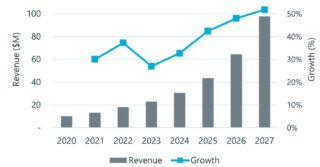Audi is all in on electromobility: As of 2026, the brand with the four rings will only launch all-electric models onto the global market, gradually phasing out production of its combustion models by 2033. Based on this clear decision made as part of its Vorsprung 2030 corporate strategy, Audi is now taking steps to prepare its global facilities for the production of all-electric cars.
Unlike many of its competitors, Audi is building on its existing global production network to achieve this vision. “Step by step, we are bringing all our sites into the future,” says Audi Board Member for Production and Logistics Gerd Walker. “We don’t want any standalone lighthouse projects on greenfield sites. Instead, we are investing in our existing plants so they end up being just as efficient and flexible as newly built production sites or greenfield plants.” According to Walker, this is sustainability in action – in economic, ecological, and social aspects. “The path Audi is taking conserves resources and accelerates our transformation to a provider of sustainable premium mobility,” Walker emphasizes.
By the end of the decade, Audi will be making electric-drive models at all of its production sites worldwide. “To achieve our goal, we are relying on our highly qualified staff and will make all our employees fit for the future by 2025 with a training budget of around 500 million euros,” says Walker. Two sites, Böllinger Höfe and Brussels, are already producing all-electric vehicles. Starting next year, the Audi Q6 e-tron will be the first all-electric model to roll off the production line in Ingolstadt. And production of all-electric cars will gradually start in Neckarsulm, San José Chiapa, and Győr as well. In 2029, all production sites will be producing at least one all-electric vehicle model. Depending on local conditions, production of the remaining combustion models will be gradually phased out by the beginning of the next decade.
New plants will only be built where additional capacity is needed. For example, Audi and its partner FAW are currently building a site in Changchun (China) where models based on the PPE (Premium Platform Electric) technology platform will be locally produced. With construction set to finish by the end of 2024, this will be the first automotive plant in China where only all-electric Audi models roll off the line.
To ensure the premium manufacturer will be able to respond more flexibly to fluctuations in customer demand or production program, Audi will make its manufacturing processes even more flexible. “We want to structure both product and production so we get the optimum benefit for our customers,” says Walker. To this end, the new Audi Q6 e-tron, for example, will initially be made in Ingolstadt on the same line as the Audi A4 and A5. The electric models will then gradually replace the combustion cars on the lines.


![Forecasts, Opportunities, and Challenges for the Polish Industry in 2024 [ANALYSIS] Forecasts, Opportunities, and Challenges for the Polish Industry in 2024 [ANALYSIS]](https://industryinsider.eu/wp-content/uploads/xIndustry-40-320x167.jpg.pagespeed.ic.o8zijDQlIJ.jpg)
![The importance of artificial intelligence in transport and automotive industry is growing [REPORT] The importance of artificial intelligence in transport and automotive industry is growing [REPORT]](https://industryinsider.eu/wp-content/uploads/xcity-320x167.jpeg.pagespeed.ic.xFkQdk7qXO.jpg)
![By 2030, the market size of metal processing tools is expected to reach $120.44 billion [REPORT] By 2030, the market size of metal processing tools is expected to reach $120.44 billion [REPORT]](https://industryinsider.eu/wp-content/uploads/xcutting-tools-320x167.jpg.pagespeed.ic.SgnEk-RWA-.jpg)
![Methane emissions remains elusive challenge for oil and gas industry [REPORT] Methane emissions remains elusive challenge for oil and gas industry [REPORT]](https://industryinsider.eu/wp-content/uploads/xMethane-emissions-by-source-320x167.jpg.pagespeed.ic.q-7jG2luXb.jpg)

![Will digital twin revolutionize the aerospace and defense sector? [REPORT] Will digital twin revolutionize the aerospace and defense sector? [REPORT]](https://industryinsider.eu/wp-content/uploads/xdigital-twin-in-aerospace-320x167.jpg.pagespeed.ic.K-YNPhggcS.jpg)